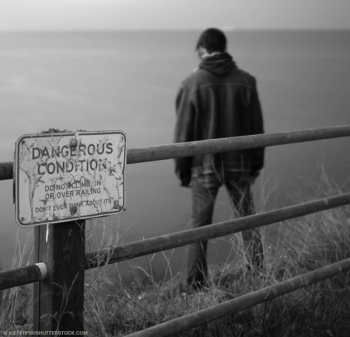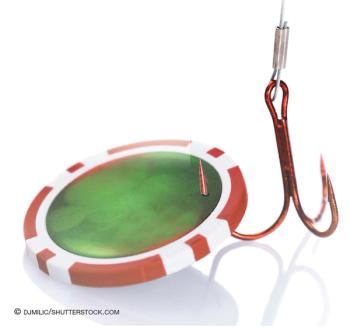
Over the past 10 years, a growing literature has documented the significantly increased rates of stress, burnout, depression, and suicidal ideation in medical students.


Over the past 10 years, a growing literature has documented the significantly increased rates of stress, burnout, depression, and suicidal ideation in medical students.

What’s the prudent way to react if a layperson is suddenly tapped to help get psychiatric care for somebody who says he desperately and immediately needs it-or else?

Loneliness, substance abuse, dating violence, and hopelessness, are just some of the risk factors for suicide, which remains the second leading cause of death for college students.

The author offers a brief commentary in response to feedback from readers of a previously published case.

Several recent publications are informative to clinicians on the topic of suicide in children and adolescents. Some of the most salient findings are reviewed here.

In this article, the author covers some basic mapractice concepts and briefly address 2 key issues that frequently arise in the course of psychiatric malpractice litigation: documentation and the defendant psychiatrist’s deposition.

College mental health is not just a matter of identifying problems but also of creating a community of students, families, friends, mental health professionals, faculty advisors, and many others to help students gain psychological resiliency.

The loss of control over urges and behaviors may be the central component of gambling disorders, but there is so much more to consider. Individuals with these problems have exponentially higher rates of suicide attempts and completions.

Professions, psychiatry included, do not have a stellar record of protecting those they serve. Do we have reason to believe that professional organizations or corporate entities can be trusted to protect their clientele?

“I may never know who you are,” writes this psychiatrist, “but if you provided medical or psychiatric care for the co-pilot of Germanwings Flight 9525, we are colleagues. And you too are his victims, of sorts. I hope your reputation does not suffer unduly.”

The recent tragedy with the Germanwings crash in the Alps has started a worldwide discussion about mental illness and suicide. NIMH Director Thomas Insel reflects on the larger issues we continue to face.

The authors differentiate between 3 types of deliberate self-harm: nonsuicidal self-injury, culturally sanctioned body modifications (tattooing or body piercing), and unintentional or accidental injury.

The authors review mechanisms of suicide and the effectiveness of current treatments, and zero in on ketamine--a potential novel, rapidly acting treatment for suicidality.

Take the ethics quiz about a cognitively intact, highly intelligent patient with good ego strength and coping skills who plans to commit suicide.

The articles in this Special Report address suicidal behavior in the context of the role of sexual identity, the effects of antidepressants and lithium on suicidal behavior, and clinicians’ reactions in the aftermath of suicide.

An interesting pharmacological approach in terms of anti-suicidal strategies is the use of lithium for treatment of patients with affective disorders. Details here.

As an occupational hazard, preparing for the possibility of patient suicide will help the clinician anticipate the types of support that our colleagues or we may need to weather the event.

Ten years ago, the FDA placed a black box warning on all antidepressants because of concerns that the medications increase risk of suicidal thoughts and behavior in youths. It's time for the FDA reevaluate that decision.

This article reviews what is known and unknown about LGBT suicide risk, discusses risk and protective factors for LGBT adolescents and adults, and provides recommendations for assessing and treating LGBT patients.

Are suicide rates higher or lower during holidays such as Thanksgiving and Christmas? Take the quiz and learn more.

What percentage of patients hospitalized for depression eventually die by suicide? Learn more in this quiz.

In the US, suicide is a leading cause of death, ranking third among youths aged 15 to 24. Rates of suicide attempts and death are highest among US Pacific Island indigenous youths. Emergency departments play a key role in suicide prevention, especially in this and other minority populations.

Genius and madness: does one phenomenon cause the other-or do both share a common underlying factor or mechanism? How are geniuses able to accomplish “creative fits”? The author explores both questions.

Suicide is not being adequately addressed in terms of prevention, and part of that process is better education of mental health professionals and primary care physicians. More in this expert Q&A.

An expert discusses behavioral indicators and screening instruments for suicide risk.